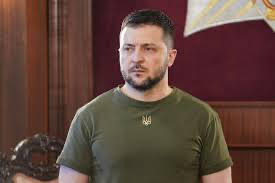The war in Donbass, a region in eastern Ukraine, began in 2014 after Russia annexed Crimea. Pro-Russian separatists in Donbass declared independence, and fighting between Ukrainian forces and separatists has continued ever since. The conflict has claimed the lives of over 13,000 people and displaced more than 1.6 million.
Trump had made the claim during a phone call with Zelensky, which was at the center of a controversy that led to his impeachment. Trump was accused of pressuring Zelensky to investigate his political rival, Joe Biden, and withholding military aid to Ukraine as a bargaining chip.
Zelensky's response to Trump's claim was not only a rebuke of the former president's unrealistic promise but also a reminder of the complexities and challenges of resolving the conflict in Donbass. The war has deep historical and cultural roots, and it involves not just Ukraine and Russia but also the separatist groups and other regional powers.
Moreover, the conflict has been fueled by propaganda, disinformation, and political manipulation, making it difficult to establish trust and find common ground. The Minsk agreements, a set of ceasefire and peace accords signed in 2015, have been repeatedly violated, and the negotiations have stalled.
Zelensky, who came to power in 2019 on a platform of ending the war and reforming Ukraine's governance, has made some progress in the peace process. He has engaged in direct talks with Russian President Vladimir Putin, exchanged prisoners, and agreed on new ceasefire measures. He has also sought to address some of the underlying issues, such as corruption and decentralization.
However, Zelensky's efforts have been met with skepticism and resistance from both the separatists and the Ukrainian government's hardliners. The separatists, who are backed by Russia, have shown little willingness to compromise or relinquish their control over the territories they occupy. The hardliners, who view any concession to the separatists as a betrayal of Ukraine's sovereignty, have criticized Zelensky for being too soft and accommodating.
The conflict in Donbass is not just a local or regional issue but also a global one, as it involves Russia's relations with the West and the broader geopolitical context of Europe. The war has led to sanctions, diplomatic tensions, and a sense of insecurity in the region. It has also highlighted the fragility of the post-Cold War order and the challenges of managing a multipolar world.
In conclusion, Zelensky's response to Trump's claim that he could end the war in Donbass in a day was a reminder of the complexities and challenges of resolving the conflict. While Zelensky has made some progress in the peace process, the conflict remains unresolved, and the prospects for a lasting solution are uncertain. The conflict in Donbass is a tragic reminder of the consequences of nationalism, historical grievances, and geopolitical rivalry. It is also a call for renewed efforts to find a peaceful and just resolution that respects the rights and aspirations of all parties involved.
